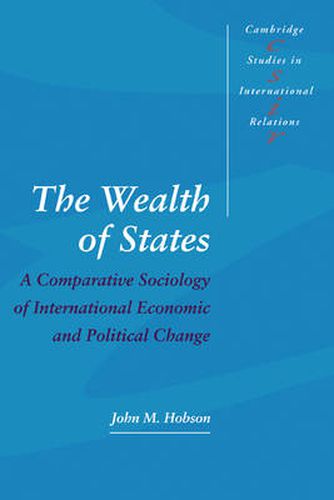Readings Newsletter
Become a Readings Member to make your shopping experience even easier.
Sign in or sign up for free!
You’re not far away from qualifying for FREE standard shipping within Australia
You’ve qualified for FREE standard shipping within Australia
The cart is loading…






In recent years a number of scholars of international relations have developed an interest in neo-Weberian historical sociology, but The Wealth of States is the first sustained analysis of the overlap between historical sociology and international relations. John Hobson develops a new theory of international change using a sociological approach, through a detailed examination of nineteenth-century trade regimes, and the efforts of the Great Powers to increase their military capabilities before the First World War through tariff protectionism. His analysis reveals the importance of the state as an autonomous, ‘adaptive’ actor in international politics and economics, which is not dependent upon dominant economic classes. The book thus represents a distinctive approach which goes beyond the existing paradigms of marxism, liberalism, and realism.
$9.00 standard shipping within Australia
FREE standard shipping within Australia for orders over $100.00
Express & International shipping calculated at checkout
In recent years a number of scholars of international relations have developed an interest in neo-Weberian historical sociology, but The Wealth of States is the first sustained analysis of the overlap between historical sociology and international relations. John Hobson develops a new theory of international change using a sociological approach, through a detailed examination of nineteenth-century trade regimes, and the efforts of the Great Powers to increase their military capabilities before the First World War through tariff protectionism. His analysis reveals the importance of the state as an autonomous, ‘adaptive’ actor in international politics and economics, which is not dependent upon dominant economic classes. The book thus represents a distinctive approach which goes beyond the existing paradigms of marxism, liberalism, and realism.